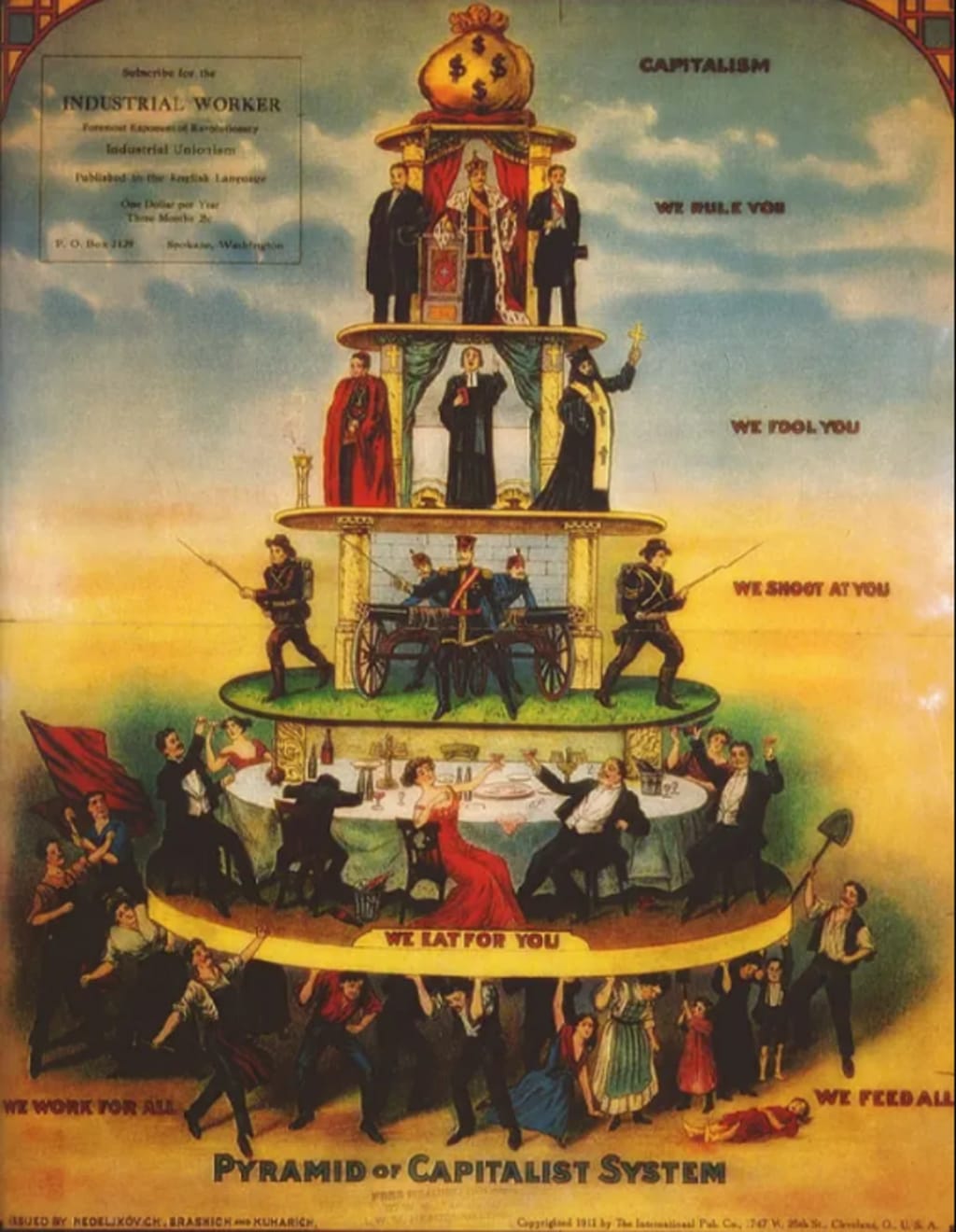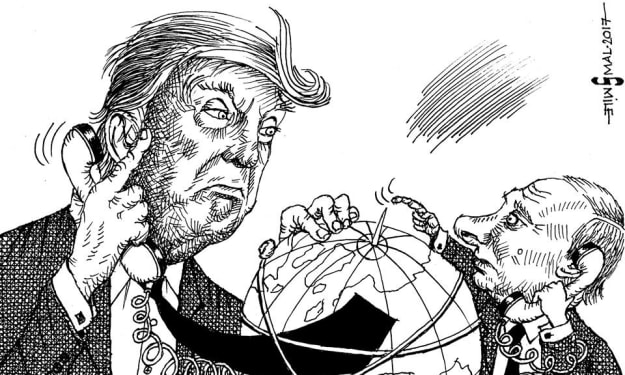Breaking Free from Modern Slavery
Rediscovering Self-Sufficiency in a Capitalist World

I'm at the point in my life where I'm so sick of modern slavery. Yes, I’m talking about capitalism. It's a relentless cycle of striving, barely surviving, and never quite thriving. We push ourselves to get ahead, but the goalposts keep moving, leaving us in a perpetual state of 'not enough.' This isn’t just a personal struggle; it's a systemic issue that divides economies and creates evident contrasts between the haves and the have-nots.
Capitalism, in its essence, promised freedom and opportunity. However, the reality for many is far different. It’s a system where the majority toil away for wages that barely cover basic living expenses, while a small elite amasses wealth. This is very similar to historical forms of slavery where the hard work of many made a few people rich. The key difference today is the illusion of choice and freedom, but the chains of economic necessity bind just as tightly.
The economic inequality in our world is staggering. According to a 2020 Oxfam report, the world's richest 1% have more than twice as much wealth as 6.9 billion people. This disparity isn’t just a number; it translates into real-world consequences. From healthcare and education to opportunities and quality of life, the divide impacts every aspect of our existence. The wealthy can afford the best of everything, while the poor struggle to meet basic needs.
This relentless pursuit of survival under capitalism takes a severe toll on mental health. The constant stress of financial insecurity, coupled with the societal pressure to 'succeed,' leads to anxiety, depression, and burnout. The World Health Organization reports that depression is now the leading cause of disability worldwide, a clear indicator of the mental strain our economic system imposes.
Capitalism's insatiable quest for profit often comes at the expense of the environment. Deforestation, pollution, and climate change are direct results of prioritizing economic growth over ecological sustainability. Traditional societies, which lived in harmony with nature, understood the importance of preserving the earth for future generations. Today, we are rapidly losing this wisdom, causing irreversible damage to our planet.
In my journey to break free from this cycle, I’ve found empowerment in self-sufficiency. Learning to grow my own food and make my own clothes has been liberating. It reconnects me with the processes that sustain life, fostering a sense of independence and resilience. This isn't just about survival; it's about reclaiming control over my existence.
Our ancestors possessed profound knowledge about living sustainably. They prioritized what truly mattered: community, health, and harmony with nature. In contrast, modern society often prioritizes money and greed. Traditional skills, once essential for survival, have been forgotten, making us more dependent on external systems for our needs. This dependency ensures a steady flow of money to those who control these systems, perpetuating the cycle of economic slavery.
Our education system plays a significant role in this dynamic. Schools are designed to prepare students for the workforce, not for self-sufficient living. Practical life skills and sustainable practices are often overlooked. Reforming education to include these elements is crucial for fostering independence and environmental stewardship in future generations.
To create a more sustainable and equitable world, we must start by reducing our dependence on the capitalist system. This can be achieved through various means:
Community Initiatives: Join or form community groups focused on sustainability. Community gardens, cooperative businesses, and local trading systems can help reduce reliance on large corporations.
Policy Changes: Advocate for policies that support small-scale farmers, provide universal basic income, and incentivize sustainable practices.
Education Reform: Push for educational curricula that include practical life skills, critical thinking about economic systems, and environmental stewardship.
I’m not alone in this pursuit. More people are choosing self-sufficiency and sustainability as they grow weary of the capitalist grind. This movement is gaining momentum, fueled by a collective desire for a more balanced, fulfilling way of life.
In conclusion, the system we live in clearly doesn’t work for everyone. By remembering and applying the wisdom of our ancestors, learning sustainable practices, and fostering more conscious communities, we can break free from modern slavery and create a world where everyone has enough. It’s time to redefine success and prioritize what truly matters: our health, our environment, and our humanity.
About the Creator
Demi Wright
My care, curiosity, and love for the world have inspired me to learn and share insights that can make a positive impact. I'm on a mission to contribute towards making the world a better place. Join me and let's make a difference together!
Enjoyed the story? Support the Creator.
Subscribe for free to receive all their stories in your feed. You could also pledge your support or give them a one-off tip, letting them know you appreciate their work.






Comments (1)
Your writing has a captivating flow that keeps me engaged . Thank you for sharing.